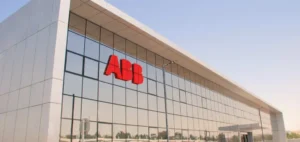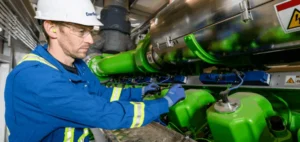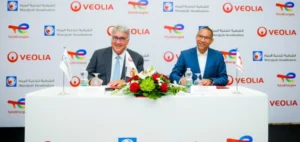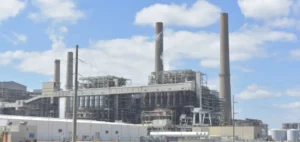ACWA Power recently announced the signing of four agreements for the development of renewable energy in the Republic of Azerbaijan.
Key agreements with the Ministry of Energy
ACWA Power has signed key implementation agreements with the Ministry of Energy and a cooperation agreement with the State Oil Company of the Republic of Azerbaijan (SOCAR) for renewable energy projects. These agreements aim to improve Azerbaijan’s national power grid by integrating additional renewable energy sources and position the country to expand its export market.
Wind power and energy storage projects
ACWA Power’s new MOU with the Azerbaijani Ministry of Energy includes the development of a battery energy storage system, as well as implementation agreements for 1 GW and 1.5 GW of onshore and offshore wind. In addition, ACWA Power is pursuing its 240 MW wind farm project in Azerbaijan, which is expected to produce approximately one billion kilowatt hours of electricity per year and save approximately 220 million cubic meters of natural gas while reducing carbon emissions by more than 400,000 tons per year upon completion.
Public-private partnerships for accelerated development
ACWA Power entered the Azerbaijani market in 2019 and continues to expand its geographic footprint in the country using its public-private partnership model to support foreign direct investment that is critical to energy infrastructure development. These agreements reaffirm ACWA Power’s commitment to helping Azerbaijan achieve its ambitious goals of renewable energy integration, greenhouse gas emission reduction and decarbonization.
ACWA Power has signed major agreements to develop renewable energy in Azerbaijan in collaboration with the Ministry of Energy and the State Oil Company of the Republic of Azerbaijan. The wind power and energy storage projects will improve the national power grid, position the country to expand its export market and reduce carbon emissions. ACWA Power continues its commitment to leading and enabling the global energy transition using its public-private partnership model for accelerated development.






















